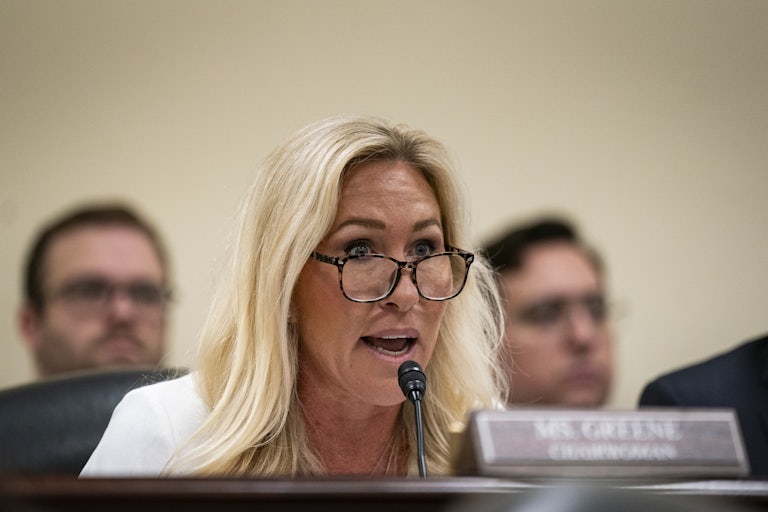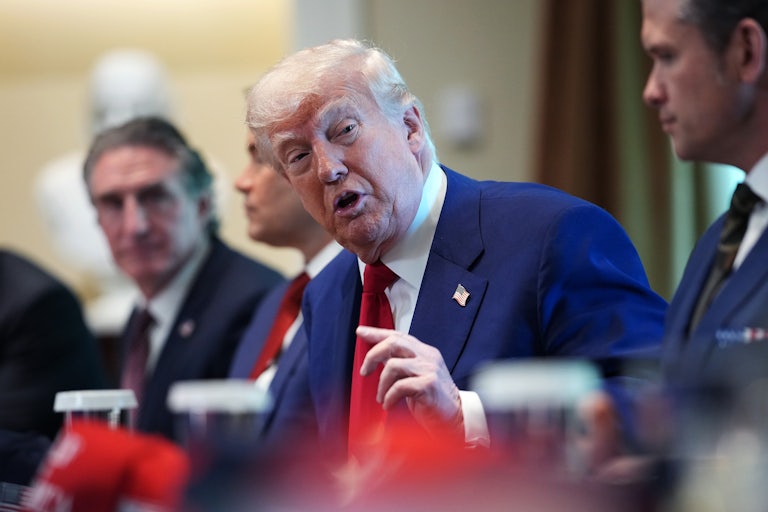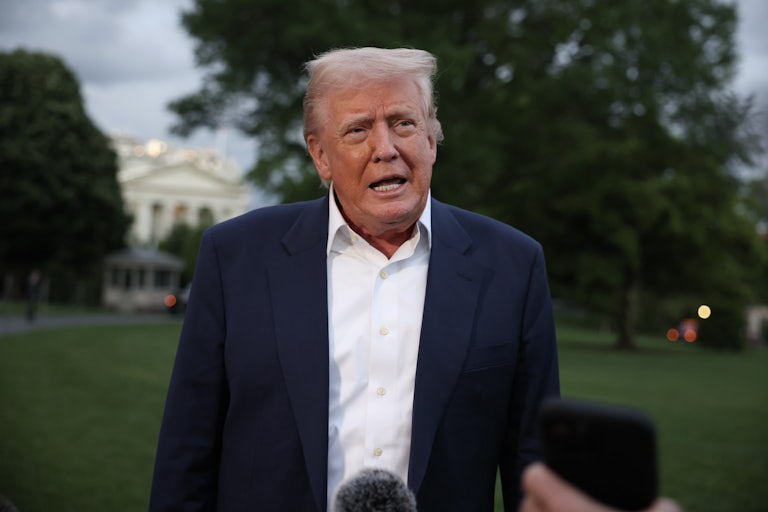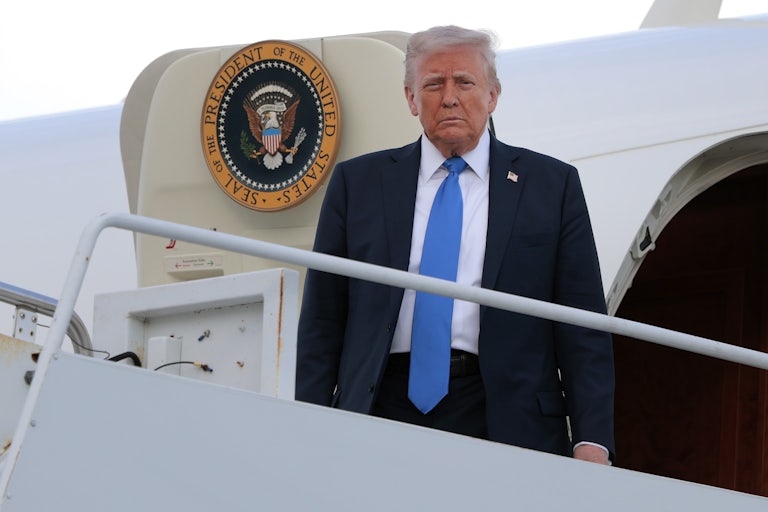Stephen Miller Unveils Totally Made-Up Definition of “Due Process”
The Trump adviser is trying to redefine the Constitution in order to carry out his extreme immigration agenda.
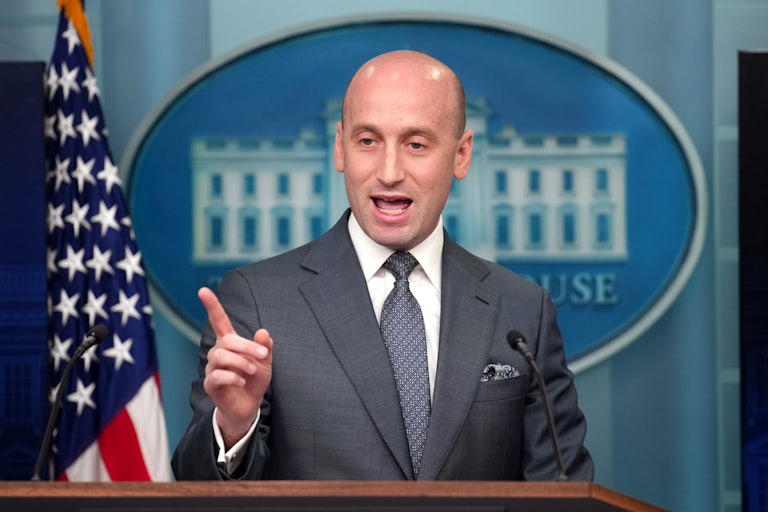
The Trump administration continues to subvert the constitutional right to due process to justify its illegal, extrajudicial deportations.
“The right of ‘due process’ is to protect citizens from their government, not to protect foreign trespassers from removal,” wrote deputy chief of staff Stephen Miller on Monday morning. “Due process guarantees the rights of a criminal defendant facing prosecution, not an illegal alien facing deportation.”
This is not how the law works. The due process clause of the Fifth Amendment states:
No person shall be held to answer for a capital, or otherwise infamous crime, unless on a presentment or indictment of a Grand Jury, except in cases arising in the land or naval forces, or in the Militia, when in actual service in time of War or public danger. [emphasis added]
The clause has no specification for citizenship.
Miller’s claim has been widely rebuked.
“Stephen Miller is lying to you. The Supreme Court has emphasized for generations that EVERY person gets due process,” wrote American Immigration Council senior fellow Aaron Reichlin-Melnick. “Here’s none other than Antonin Scalia in 1993: ‘It is well established that the Fifth Amendment entitles aliens to due process of law in deportation proceedings.’”
“What is it about the phrase ‘no person’—as in ‘no person shall be … deprived of life, liberty, or property, without due process of law’—that you seem to be unable to get into your thick, sociopathic skull?” asked George Conway.
“Shaughnessy v. U.S. (1953): ‘It is true that aliens who have once passed through our gates, even illegally, may be expelled only after proceedings conforming to traditional standards of fairness encompassed in due process of law,’” wrote The Washington Post’s Aaron Blake.
As Miller continues to contort the law to keep up his cruelty, Trump reaffirmed the administration’s commitment to authoritarianism when he responded to a simple question about being required to uphold the Constitution with an “I don’t know.”


